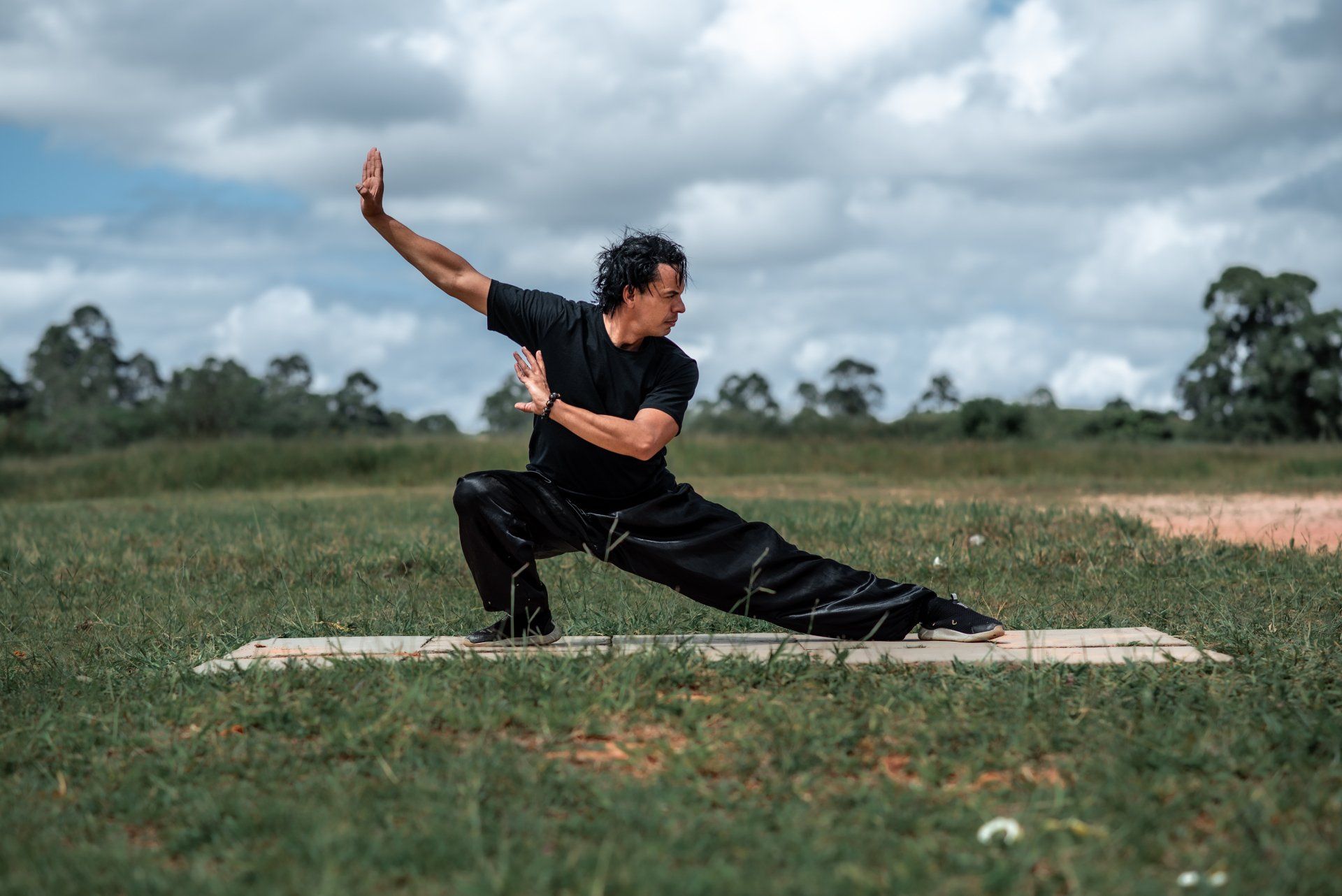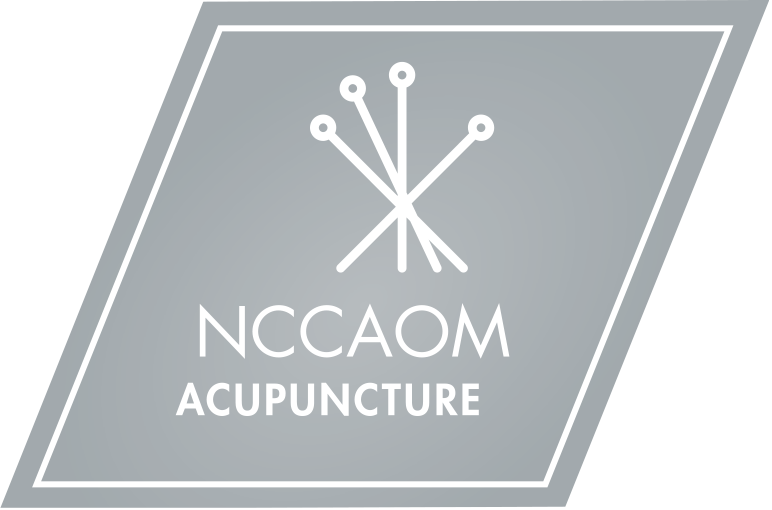Melody's Musings
What is Qi?

What is Qi? Ostensibly, qi is as both concept and substance as elusive as it is ubiquitous. There are many different theories which have been presented throughout the centuries as to what, exactly, qi is. The topic is still debated widely today- and is as much a historical argument as a philosophical one.
“If you open a good Chinese dictionary you may find under qi several meanings which are an expression of the various historical uses of qi. For instance, there can be a state of undifferentiated totality in which everything is qi. It can be the life-giving principle, original qi, or the components of the constituent agent of all which exists. You can also have the idea of the life force and activity in any organism or phenomenon, the vigor of motion, energy, the animating forces of the universe. Qi is also used for more observable things, for instance breath, steam, gas or vapour. All of these are found in this character” (Rochat, 2006).
An argument could be made that qi is, in fact all of these things or any one of them. In a modern context, we refer to objects, people, plants, and animals all having qi. In chinese medicine as it is practiced today, we diagnose patterns of qi deficiency, rebellious qi, qi fall, and qi stagnation. To merely try to pin the meaning of qi down to a single word- “energy” just does not seem to remotely begin to cover the vast expanse of this concept. Similarly, others have tried to pin the idea of qi down to “oxygen” or “air” because of the breathing practices used in qigong to build the qi of the body- and again this is simply too narrow of a definition to apply to the concept. Qi is a much broader idea than a single word definition and any attempt to oversimplify it merely highlights a lack of understanding of what it is.
The goal of Acupuncture is generally to manipulate qi to heal the body. Obviously, if the entire basis of your healing ritual is to move qi, it is very important to know what- exactly- qi is. Chinese Acupuncture and Moxibustion defines qi as follows:
“According to ancient Chinese thought, qi was the fundamental substance constituting the universe, and all phenomena were produced by the changes and movement of qi. This viewpoint greatly influenced the theory of traditional Chinese medicine, Generally speaking, the word “qi” in traditional chinese medicine denotes both the essential substances of the human body which maintain its vital activities, and the functional activities of the zang-fu organs and tissues. Essential substances are the foundation of functional activities. In this sense, qi is too rarefied to be seen and its existence is manifested in the functions of the zang-fu organs. All vital activities of the human body are explained by changes and movement of qi” (Cheng, 2010).
This definition of qi also seems to be lacking. It touches on the idea of qi constituting the universe and all the phenomena, however it then diverts off with regards to qi in the body, almost as though to separate the two into different categories and thus give them separate definitions.
“The qi itself is neither a substance nor a spirit. What we may say is that qi manifests through phenomena, and is inseparable from that manifestation to which it gives specificity and movement. On the other hand, we can not say that qi is the same thing as these phenomena or beings.
“When things cease to be, the qi does not disappear but no longer having a form, it can no longer be perceived. So we could say that it has an infinite and indefinite potentiality. But ‘potentiality’ sounds like an abstraction, which is not the case with qi. It is a reality. So finally we come to the understanding that everything is qi and qi is everything that exists” (Rochat, 2006).
“Qi gives movement, change and transformation to the various expressions of life, and allows the manifestation of specific qualities and aspects. For instance, in nature it is air, but it is also the state of nature itself, the weather and the atmosphere” (Rochat, 2006).
One might argue, based upon these points that qi is a result of manifestation of an intention into the world- more than a mere life force but rather, as Rochat posits, a potentiality being realized. With regards to acupuncture, the manipulation of qi could be translated as the manifestation of an intention in the body. In this case, the intention would be healing. However, intention is not enough by itself. There are hundreds of different points located on 14 cutaneous meridians, several microsystems, and each point has its own functions and indications.
It is at this point that one must conclude that qi is either so many things that it defies a specific or simple definition. Alternately, so many ideas seem to be encompassed by the term “qi” that one may actually wonder if “qi” is not just a term which has befallen that which we do not have a better way of explaining. In Chinese medicine, qi related disorders have a western correlation to things like endocrine disorders, lymphatic disorders, immune diseases, etc.
“Blood is the mother of qi. Qi governs the blood. Qi is the blood commander. When qi moves, blood moves. When qi gathers there is generation (or life)... Qi effuses from the viscera. Qi is able to transform dampness. Qi governs warming; blood governs moistening. Defensive qi guards the outside; construction and blood keep watch on the inside” (Flaws, 1994).
The defensive qi, in terms of western medicine is most easily correlated with the immune system. The Qi moves with the blood (white blood cells). Dampness can be many things as well. It can be fluid metabolism in the body, which links qi to the Kidneys and their signaling system in the brain to either retain or excrete water in the urine. Dampness can also be correlated to cholesterol, which is dealt with by the liver, gallbladder, and the lymph system.
It could potentially be surmised that early Chinese Physicians, having an understanding of these very complex processes and disease patterns, ascribed these phenomena to “qi”. The Western Clinical model had not yet been developed and thus, in our very ethnocentric way of viewing other paradigms, we have this desire to oversimplify a term which, by the very nature of how it is used, is not simple. “Everything is qi and qi is everything that exists” (Rochat, 2006).
I recently heard another practitioner surmise Qi as being like an action verb. Since the qi moves with the blood, if the qi is stagnant then the blood would also be a little stagnant in that scenario and I liked the simplicity this definition offered. Do you have any thoughts you would like to share below on what qi might mean?
References:
Cheng, X. (2010). Chinese acupuncture and moxibustion (3rd ed., p. 51). X. Cheng (Ed.). Beijing: Foreign Language Press.
Flaws, B. (1994). Life principles, i.e., (TCM) physiology. In
Statements of fact in traditional Chinese medicine (pp. 58-61). Boulder, CO: Blue Poppy Press, Inc.
Rochat de la Vallée, E. (©2006).
A study of qi (pp. 3-9). [Cambridge, England]: Monkey Press.


